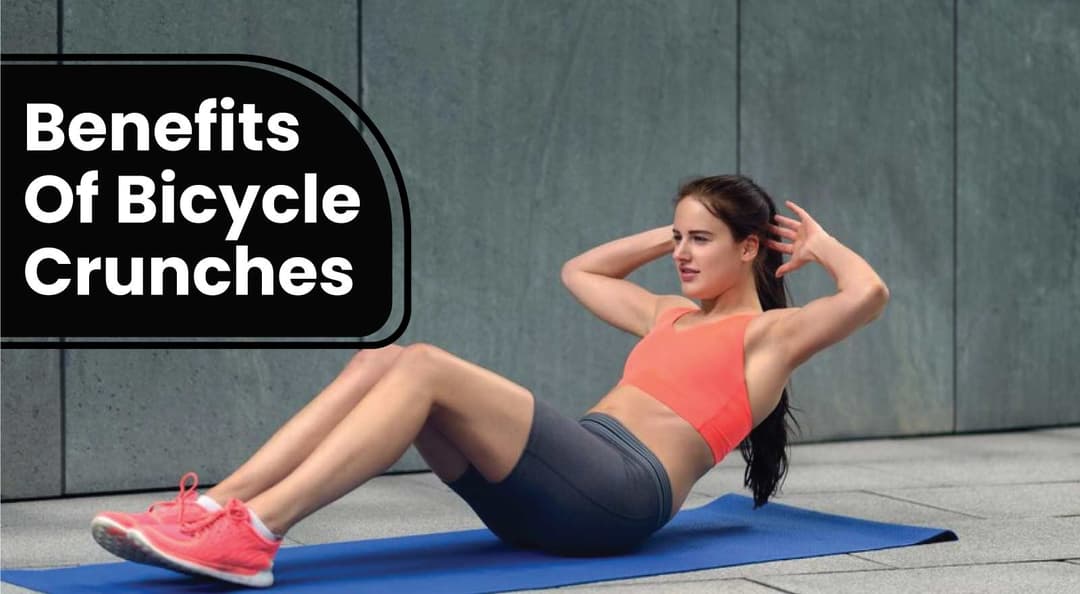Regular physical activity is not merely a recommendation but a necessity for maintaining optimal wellness. This importance of exercise emphasises the interconnectedness of physical activity with mental health, underscoring the importance of physical exercise for a balanced and fulfilling existence. The World Health Organization (WHO) highlighted that regular exercise helps prevent and manage many non-communicable diseases (NCDs). These benefits of physical fitness include heart disease, hypertension, diabetes, and various forms of cancer. Moreover, exercise contributes significantly to weight management goals.
The benefits of exercise extend beyond chronic and physical health, permeating into mental and emotional realms. Regular exercise also aids in thriving daily lifestyles, improving cognitive function and sleep quality, fostering social connections, and boosting self-esteem. So, to understand the importance of exercise in our daily lives, explore the incredible 35 benefits of exercise for starting a transformative practice.
Table Of Contents
1. Why Is Fitness Important For A Healthy Life?
2. What Is The Main Importance Of Exercise? 35 Benefits Of Exercise
3. 6 Ways To Evaluate The Importance Of Exercise For Your Body
4. The Final Say
5. FAQs
6. References
Why Is Fitness Important For A Healthy Life?
Fitness is indeed a significant component of a healthy lifestyle, serving as a defence mechanism against the perils of a sedentary way of life. It encompasses many activities, including aerobic exercises, strength training, flexibility exercises, and even mindfulness practices like yoga and meditation. Each facet of fitness contributes uniquely to overall well-being, promoting physical, mental, and emotional resilience. Sedentary behaviour has been linked to obesity, heart disease, diabetes, and metabolic disorders.
Thus, you can reduce these risks and safeguard your health by understanding the importance of exercise and incorporating regular physical activity.
What Is The Main Importance Of Exercise? 35 Benefits Of Exercise
Let’s explore the incredible importance of exercise for your health and enhanced quality of lifestyle:
1. Improves Mood And Reduces Emotional Anxiety
Regular exercise is a potent tool for enhancing mood and reducing emotional anxiety. Exercising benefits allow the brain to release endorphins, often called "feel-good" hormones, which can elevate mood and create a sense of well-being. Also, exercising distracts from negative thoughts and worries, fostering a more positive outlook.
2. Reduces Stress Hormones Promoting Relaxation
Exercise is a natural stress reliever. It reduces cortisol levels, a stress hormone in the body. Physical activity triggers the relaxation response, promoting a sense of calmness and relieving tension in muscles. From a brisk walk or yoga session to a strength training workout, regular exercise reduces stress and promotes relaxation.
3. Improves Posture And Prevents Back Pain
Strengthening your abdomen and lower back core muscles helps support the spine and improve alignment. Also, exercises targeting flexibility and mobility can help prevent stiffness that contributes to back pain. Incorporating exercises that focus on posture and back strength into your fitness regimen can benefit you with better spinal health and reduced discomfort.
4. Reduces Illness Risk And Enhances Immunity
Exercise promotes efficient blood and lymphatic fluid circulation smoothly throughout the body, which helps flush out toxins and pathogens. Moreover, physical activity stimulates the production of antibodies and immune cells, strengthening the body's defence mechanisms against infections and diseases.
5. Strengthens Heart And Reduces Stroke Risk
Aerobic exercises like running, swimming, and cycling increase heart rate and improve circulation, strengthening heart muscle and cardiac function. Additionally, exercise helps lower blood pressure, reduce LDL cholesterol levels, and prevent plaque buildup, all contributing to a lower risk of stroke and other cardiovascular events.
Also Read: Best Cardio For Weight Loss And 14 Best Fat Loss Exercises To Do At Home!
6. Improves Memory And Retention Power
Exercise increases the brain’s blood flow, delivering oxygen and essential nutrients that support optimal brain function. Moreover, exercise stimulates the release of growth factors that promote brain cells' survival and healthy growth, enhancing neuroplasticity and cognitive abilities.
7. Helps Maintain A Healthy Weight And Body Mass
Exercise helps burn calories and maintain healthy metabolic rates, contributing to weight loss or maintenance. Furthermore, exercise helps build lean muscle mass, boosts metabolism, and promotes a healthy body composition. Combined with a balanced diet, regular exercise reduces obesity-related health risks like diabetes, heart disease, and hypertension.
8. Boosts Energy Levels And Reduces Fatigue
Contrary to common misconceptions, physical activity increases energy levels by enhancing blood flow and oxygen delivery throughout the body. Additionally, exercise releases endorphins, neurotransmitters that promote feelings of wellness and reduce fatigue.
9. Strengthens Muscles And Bones
Exercise is vital in strengthening muscles and bones, contributing to overall musculoskeletal health. Weight-bearing exercises such as resistance training, weightlifting, and body weight help stimulate muscle growth and increase muscle strength and endurance.
10. Supports Healthy Ageing For A Longer Lifespan
Physical activity helps maintain mobility, flexibility, and balance, reducing the fall risk and injuries in older adults. Moreover, exercise supports cardiovascular health and cognitive function, contributing to a higher lifestyle as individuals age. By staying active in regular exercise, individuals can preserve their independence and overall health, allowing them to enjoy a longer, more fulfilling lifespan.
11. Enhances Flexibility And Range Of Motion
Regular exercise, particularly activities focusing on flexibility and mobility, can enhance flexibility and range of motion in joints and muscles. Stretching exercises, yoga, and Pilates help lengthen muscles, improve joint mobility and balance and reduce stiffness, allowing for greater freedom of movement.
12. Promotes Sleep Patterns And Deeper Sleep
Physical activity helps regulate the body's internal clock, known as the circadian rhythm, which governs sleep-wake cycles. By engaging in exercise, individuals can reduce the time it takes to fall asleep and increase the duration of their sleep cycles. Moreover, exercise improves sleep quality by promoting relaxation and reducing symptoms of insomnia and sleep disorders.
13. Improves Skin Health And Complexion
Physical activity promotes better circulation, which helps deliver oxygen and essential nutrients to the skin, resulting in a healthy glow. Also, exercise stimulates collagen production to maintain skin elasticity levels and reduce the appearance of wrinkles. Furthermore, sweating during exercise helps unclog pores and remove toxins from the skin, preventing breakouts and promoting clearer skin.
14. Improves Lung Function And Capacity
Aerobic exercises like running, cycling, walking, and swimming increase lung capacity by supporting the respiratory muscles and improving the efficiency of oxygen exchange in the lungs. Exercise also helps clear mucus and congestion from the airways, reducing respiratory infections and improving breathing quality.
15. Reduces ADHD Symptoms And Improves Focus
Exercise is beneficial in reducing symptoms of Attention Deficit Hyperactivity Disorder (ADHD) and improving focus and concentration. Physical activity increases dopamine and norepinephrine production, which is essential for regulating attention and impulse control.
16. Builds Resilience To Stress And Coping Mechanisms
Physical activity stimulates the release of endorphins, neurotransmitters that act as natural stress relievers, promoting relaxation. Exercise also helps manage stress and pent-up emotions, reducing problems like anxiety and depression. By engaging in regular exercise, individuals develop resilience to stressors and cultivate adaptive coping strategies, leading to improved mental and emotional wellness.
17. Reduces Menopause Symptoms
Physical activity helps regulate hormonal fluctuations that occur during menopause, reducing symptoms such as hot flashes, mood swings, and sleep disturbances. Moreover, regular exercise reduces feelings of anxiety and depression commonly experienced during menopause.
18. Reduces Chronic Pain And Improves Pain Tolerance
Regular physical activity helps alleviate pain by releasing endorphins, the body's natural painkillers, which can reduce discomfort and improve mood. Additionally, exercise strengthens muscles and improves flexibility, which can help alleviate strain on joints and reduce pain in conditions like arthritis and fibromyalgia.
19. Aids In Weight Loss And Maintenance
Physical activity helps increase metabolism, contributing to weight loss with a balanced diet. Moreover, exercise helps build lean muscle mass, boosts metabolism, and promotes fat loss. By incorporating regular exercise, you can sustainably achieve your fat and weight loss goals.
20. Maintains Bone Density, Reducing Osteoporosis Risk
Regular exercise is essential for improving bone density and reducing osteoporosis chances, a condition characterised by weakened and brittle bones. Weight-bearing exercises like strength training help promote bone formation and increase bone density, reducing fractures and fall risk.
21. Reduces Fall Risk By Promoting Stability
Physical activity helps strengthen muscles and improve proprioception, the body's awareness of its position in space. This can help prevent trips and falls. Incorporating balance and stability exercises like yoga, tai chi, or specific strength exercises can enhance stability, particularly as you age.
22. Reduces Diabetes Risk, Regulating Blood Sugar Levels
Physical activity improves insulin sensitivity levels, allowing cells to effectively absorb glucose from the bloodstream and use it for energy. Moreover, exercise helps regulate blood sugar levels by promoting weight loss and reducing excess fat, which can contribute to insulin resistance.
23. Maintains Healthy Blood Pressure Levels
Physical activity helps lower blood pressure by improving cardiovascular health, increasing blood flow circulation, and reducing the workload on the heart. Moreover, exercise promotes relaxation and reduces stress, lowering blood pressure levels. Strength exercises also help lower blood pressure by improving cardiovascular fitness and promoting healthy blood vessel function.
24. Promotes Digestion And Regular Bowel Movements
Exercise strengthens the digestive tract muscles, promoting food movement through the digestive system and preventing constipation. Additionally, exercise helps regulate hormones and neurotransmitters involved in digestion, such as serotonin, which can improve gut motility and reduce discomfort.
25. Reduces Muscle Soreness, Aiding In Faster Recovery
Regular exercise helps improve muscle blood flow, delivering oxygen and nutrients that aid repair and recovery. Moreover, exercise promotes the release of endorphins, which act as natural pain relievers and reduce feelings of soreness and discomfort. Incorporating stretching, foam rolling, and low-intensity exercise into post-workout routines can further aid in muscle recovery.
Also Read: An In-Depth Guide To The Best Calisthenics Workout Routine For Beginners!
26. Improves Sexual Health And Satisfaction
Regular physical activity improves heart health, increases overall blood flow, and enhances stamina and endurance, all of which can improve sexual function. Moreover, exercise promotes the release of endorphins and boosts mood, reducing stress and anxiety levels that may interfere with sexual desire and arousal.
27. Enhances Body Awareness And Mindfulness
Exercise provides an opportunity to enhance body awareness and cultivate mindfulness, the practice of being present and fully engaged in the moment. Yoga, tai chi, and Pilates focus on breath awareness, movement, and body alignment, promoting a deeper connection between the mind and body.
28. Improves Body's Response To Vaccines
Regular exercise can enhance the body's immune response to vaccines, improving effectiveness and protecting against infectious diseases. Physical activity aids immune cell production and enhances their ability to respond to pathogens, strengthening the body's defence mechanisms.
29. Help Raise HDL And Lower LDL Cholesterol Levels
Exercise helps improve cholesterol levels by raising high-density lipoprotein (HDL), known as "good" cholesterol, and lowering low-density lipoprotein (LDL) cholesterol, known as "bad" cholesterol. Aerobic exercises like brisk walking and cycling help increase HDL cholesterol levels by promoting cholesterol transport from the bloodstream to the liver passage for processing and removal.
30. Lowers Risk Of Cognitive Decline And Dementia
Physical activity helps improve cardiovascular health, lower blood pressure, and reduce the risk of heart disease and stroke. Moreover, exercise helps maintain a healthy weight, regulate blood sugar levels, and boost immune function, reducing the risk of chronic diseases such as diabetes and cancer.
31. Promotes Joint Health, Reducing Arthritis Risk
Physical activity helps the muscles around the joints, providing support and stability that can help alleviate strain and reduce injury risk. Moreover, exercise promotes the production of synovial fluid, a lubricant that helps cushion and protect the joints, reducing friction and wear over time.
32. Lowers Premature Death Risk From All Causes
Physical activity helps improve cardiovascular health, lower blood pressure, and reduce heart disease risk and stroke. Moreover, exercise helps maintain a healthy weight, regulate blood sugar levels, and boost immune function, reducing chronic diseases such as diabetes and cancer.
33. Improves Body Composition And Aesthetics
Exercise is vital in improving body composition and aesthetics by reducing body fat, increasing lean muscle mass, and enhancing overall muscle tone. Physical activity helps boost metabolism, contributing to weight and fat loss when combined with a balanced diet. Moreover, exercise helps sculpt and define muscles, leading to a more toned and athletic appearance.
34. Improves Athletic Performance And Endurance
Specific training regimens tailored to individual sports or activities can help athletes develop the strength, speed, agility, and endurance necessary for peak performance. Moreover, exercise improves cardiovascular fitness, increases lung capacity, and enhances muscular endurance, allowing athletes to sustain intense physical activity for more extended periods.
35. Inculcates Self-Discipline And Motivation
Regular exercise fosters self-discipline and motivation. Individuals must commit to consistent workouts and adhere to their fitness goals over time. Setting and achieving fitness goals requires dedication, perseverance, and self-control, traits that can transfer to other areas of life.
6 Ways To Evaluate The Importance Of Exercise For Your Body

Combining multiple evaluation methods allows for a balanced understanding of the importance of exercise for your body, encompassing physical, psychological, and long-term health outcomes. Note these evaluation methods to try it out:
Evaluation Method | Assessment | Importance |
Functional Movement Screen (FMS) | FMS assesses movement patterns to identify limitations or asymmetries in mobility and stability, pinpointing areas for targeted exercise intervention. | It is essential to detect potential areas of concern and guide tailored exercise routines to address specific weaknesses and prevent injury. |
Fitness Tests | Standardised tests, such as the Cooper Test for cardiovascular fitness, push-up/sit-up tests for muscular endurance, and flexibility tests, quantify fitness levels. | Provides measurable benchmarks to track progress over time, helping them gauge the effectiveness of their exercise regimen. |
Biometric Measurements | Tracking metrics like your body weight, body fat percentage, waist circumference, and blood pressure reflect the effects of exercise on body composition and health. | Offers tangible indicators of physical health improvements, guiding adjustments in exercise. |
Activity Trackers | Wearable devices/apps monitor daily physical activity (steps, distance, calories), providing insights into exercise habits and adherence to recommended activity levels. | Facilitates awareness of activity patterns, motivating individuals to stay active and helping them maintain consistency in their exercise routines. |
Performance Improvements | Enhanced strength, endurance, agility, and flexibility showcase the positive impact of exercise on physical performance and indicate overall fitness gains. | There is tangible evidence of exercise's efficacy, motivating individuals to continue their efforts and strive for further improvements in their fitness levels. |
Psychological Evaluations | Self-esteem, body image, and stress resilience assessments reveal the psychological benefits of exercise, promoting mental well-being. | Highlights the role of exercise in fostering positive psychological states, emphasising its importance beyond physical health. |
Also Read: 10 Amazing Benefits Of Water Walking And Exercise Routines For Better Health
The Final Say
This is how the importance of exercise in our daily life extends far beyond physical health, encompassing mental wellness and cognitive function. Regular physical activity promotes longevity, reduces your risk of chronic diseases, and enhances your resilience to stress and illness. Thus, from a brisk walk in the park and a yoga session at home to a challenging workout at the gym, incorporating exercise is an investment in your present and future self.
FAQs
1. What are the major health benefits of exercise?
Exercise offers many incredible health benefits, including improved heart rate and health, reduced chronic diseases such as diabetes and hypertension, weight management, enhanced mood and mental health, increased muscle and joint strength and endurance and better sleep quality.
2. What is the relation between physical fitness and mental health?
Regular exercise reduces symptoms of anxiety, depression, and stress by promoting the release of endorphins, improving mood, reducing cortisol levels, enhancing cognitive function, and boosting self-esteem and confidence.
3. What are the specific physical benefits of exercise for kids?
Physical benefits of exercise for kids include improved cardiovascular health, stronger bones and muscles, enhanced coordination and motor skills, better weight management, increased energy levels, and reduced risk of chronic diseases later in life.
4. How can I determine the importance of exercise and fitness for my body?
Determining the importance of exercise and fitness for your body involves assessing your current health status, lifestyle, fitness goals, and any underlying medical conditions. Consulting with a certified fitness trainer can help you develop a personalised exercise plan tailored to your needs and goals.
5. What is the importance of exercise for students?
Regular physical activity improves concentration, memory, and cognitive function, leading to better academic performance. Moreover, exercise helps reduce stress, anxiety, and depression, enhances mood, boosts self-esteem, and fosters social connections, all contributing to overall student well-being and success.
References
- https://www.who.int/health-topics/physical-activity#:~:text=Regular%20physical%20activity%20is%20proven,of%20life%20and%20well%2Dbeing.
- https://www.nia.nih.gov/health/exercise-and-physical-activity/real-life-benefits-exercise-and-physical-activity
- https://www.helpguide.org/articles/healthy-living/the-mental-health-benefits-of-exercise.htm#:~:text=Regular%20exercise%20can%20have%20a,fanatic%20to%20reap%20the%20benefits.
- https://www.mayoclinic.org/healthy-lifestyle/fitness/in-depth/exercise/art-20048389
- https://chear.ucsd.edu/blog/the-science-of-healthy-living-from-your-plate-to-your-mood
About ToneOp Fit
ToneOp Fit is a platform dedicated to improving and maintaining good health through a comprehensive range of goal-oriented health plans with up to 3 Coach support. With a range of Weight Management, Medical Condition, Detox Plans, and Face Yoga Plans, the app also provides premium health trackers, recipes and health content. Get customised diet, fitness, naturopathy & yoga plans and transform yourself with ToneOp.









































